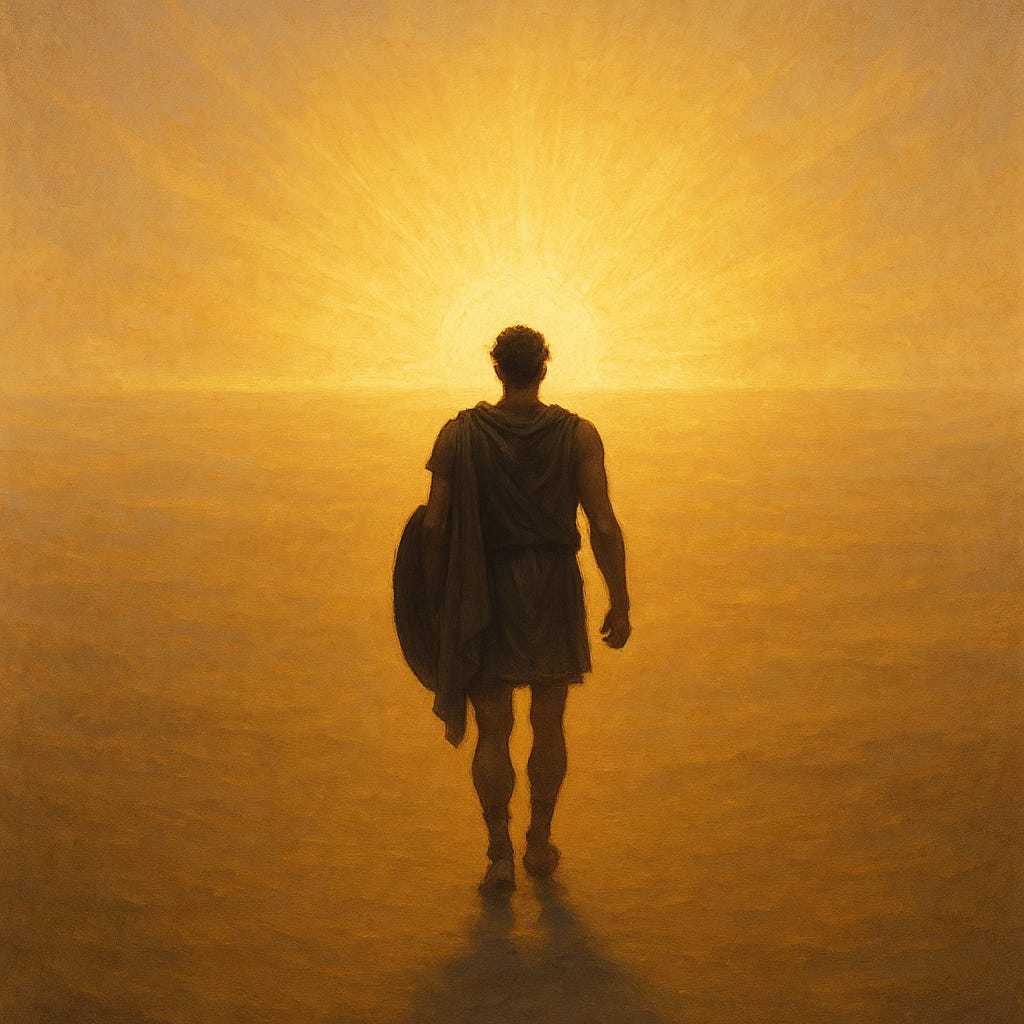The Will to Become
True greatness requires radical transformation, not inherited status, but the will to become something beyond the given.
“The higher man evidently takes his starting point from common conditions, but, precisely because he is a higher man he is obliged to separate himself from them."
Gioacchino Leo Séra
Glory manifests not only in the creative act of wealth acquisition, but in the deeper transformation of being itself. What unites both ends is their shared foundation: the refusal to accept a present limitation as final, and the embrace of power as the highest expression of human potential.
The higher individual begins from the same foundation as others—sharing common human experiences and societal conditions. Yet what distinguishes such a person is their capacity to transcend these origins.
This separation represents an existential imperative: to break away from conventional limitations and inherited values in order to realize one's unique nature. Not to escape the world, but to remake it. The journey isn't motivated by contempt for common conditions, but by the vital force that cannot be contained within them.
One of the most successful narratives throughout history is the story of someone rising from rock bottom to a new, often magnificent life—even today, most bestselling self-help books revolve around this arc.
It resonates because it’s a story as old as humanity. It is the eternal path of the awakened prophet: Buddha, from a good-for-nothing prince to an enlightened being, or Abraham, a settled man in Ur, embedded in his father's household and culture that breaks with everything to become the founding patriarch of a new people.
Or the path of the convert—like Saint Paul, who turned on the road to Damascus after viciously persecuting Christians, or Saint Augustine, who moved from hedonism to Christian theology.
Even prophets against all prophets follow this path. Leo Séra, in his study of vitalism, makes an argument about Nietzsche that is rarely raised: Nietzsche is compelling not because he claimed to have become the Superman he praised – he always said that it is a figure that is yet to come – but because he embarked on the journey to become one.
This can be seen throughout his works, in the way he becomes more confident and embraces the totality of his ideas with each new volume. His readers are invited not just to admire his conclusions but to witness, and potentially mirror, his transformation.
Lesson: True greatness requires radical transformation, not inherited status, but the will to become something beyond the given.
Awakened prophets and converts possess a unique advantage: they speak the language of both worlds. They know intimately what seekers are trying to leave behind, because they once inhabited that world. They’ve wrestled with the same doubts and confronted the same void.
To a certain extent, any personal transformation that aims toward higher ends is a struggle against a former self. This struggle requires strength—the will to overcome what one has been.
It also explains the excesses of what’s called the “zeal of the convert”: the transformed individual has tasted both slavery and freedom and knows, with the certainty of lived experience, which he prefers. He has little patience for the person he used to be.
The elevated man recognizes that his former state was not simply different but weaker—less capable of imposing his will upon reality. His new state is not merely alternative, but superior in its capacity to affect the world.
What makes the higher man powerful is precisely the pathos of distance he creates. He has established within himself a hierarchy of values not based on inherited morality but on the evidence of his own becoming.
We listen to stories of personal change not because we admire where the hero ended up, but because we relate to the fight they endured. They’ve vanquished their former selves—just as we are trying to do.
That is what makes them charismatic leaders. They don’t merely point to a destination—they embody the journey itself. They show that transformation is not only possible, but necessary.
It is indeed an aristocratic privilege to create meaning not only for oneself, but for others who lack the strength to do so. The heroic transformation becomes a map, a myth, and a challenge to those who remain.
The higher man does not seek comfort. He seeks force, order, and the freedom to rise above. He separates himself not to escape the world, but to shape it.


